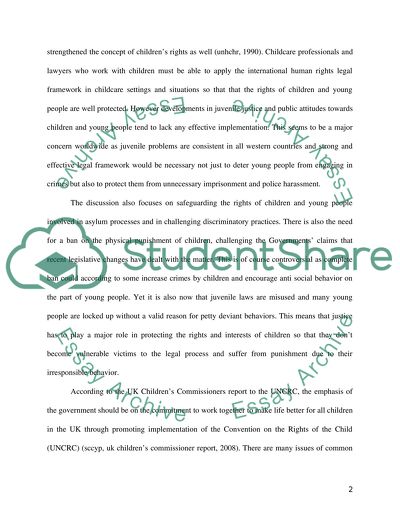Cite this document
(“Childrens Rights in the UK Essay Example | Topics and Well Written Essays - 2500 words”, n.d.)
Retrieved from https://studentshare.org/sociology/1524680-childrens-rights-in-the-uk
Retrieved from https://studentshare.org/sociology/1524680-childrens-rights-in-the-uk
(Childrens Rights in the UK Essay Example | Topics and Well Written Essays - 2500 Words)
https://studentshare.org/sociology/1524680-childrens-rights-in-the-uk.
https://studentshare.org/sociology/1524680-childrens-rights-in-the-uk.
“Childrens Rights in the UK Essay Example | Topics and Well Written Essays - 2500 Words”, n.d. https://studentshare.org/sociology/1524680-childrens-rights-in-the-uk.


